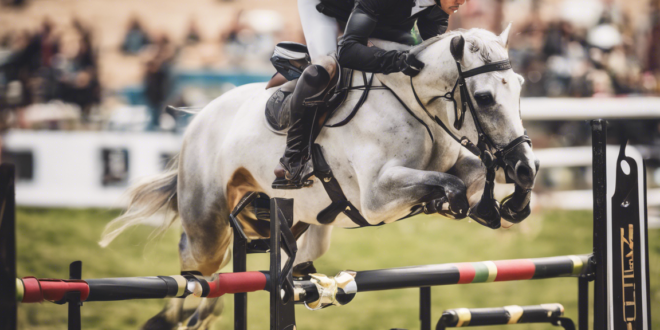Fuel Your Performance: The Ultimate Guide to Rider Nutrition for Peak Equestrian Success
As competitive equestrians, we understand that our performance is a delicate balance of physical fitness, mental preparation, and strategic nutrition. Unlike many athletes, riders face unique challenges that demand a specialized approach to fueling our bodies and minds. This comprehensive guide will dive deep into the critical world of rider nutrition, offering expert insights and practical strategies to help you optimize your performance in the saddle.
Understanding the Rider’s Nutritional Landscape
Equestrian sports are among the most demanding athletic disciplines, requiring a complex interplay of strength, endurance, balance, and mental focus. The physical demands placed on riders are extraordinary – from maintaining core stability during intense jumping competitions to enduring long hours in the saddle during endurance events. Your nutritional strategy must be as sophisticated and nuanced as the sport itself.
The Metabolic Demands of Equestrian Athletes
Competitive riders burn significant calories during training and competition. Depending on the discipline – whether it’s dressage, show jumping, eventing, or western riding – metabolic requirements can vary dramatically. An average rider might burn between 300-500 calories per hour, with intense competition scenarios pushing that number even higher. This means your nutritional intake must be precisely calibrated to match your energy expenditure.
Macro and Micronutrient Strategies for Optimal Performance
A comprehensive rider nutrition plan focuses on three primary macronutrients: proteins, carbohydrates, and healthy fats. Each plays a crucial role in supporting your athletic performance and recovery.
Protein: The Muscle Maintenance Foundation
Proteins are essential for muscle repair and recovery. Riders should aim for high-quality, lean protein sources that provide complete amino acid profiles. Recommendations include:
• Lean chicken and turkey
• Fish rich in omega-3 fatty acids
• Plant-based proteins like quinoa and legumes
• Greek yogurt
• Eggs
Target approximately 1.2-1.6 grams of protein per kilogram of body weight, adjusting based on training intensity and personal metabolic needs.
Carbohydrates: Your Energy Powerhouse
Complex carbohydrates provide sustained energy for long training sessions and competitions. Focus on nutrient-dense, low-glycemic options that offer steady blood sugar release:
• Sweet potatoes
• Whole grain pasta
• Brown rice
• Oatmeal
• Quinoa
Time your carbohydrate intake strategically – consuming them 2-3 hours before riding to ensure optimal energy levels without causing digestive discomfort.
Hydration: The Often Overlooked Performance Enhancer
Proper hydration is critical for equestrian athletes. Dehydration can dramatically reduce cognitive function, muscle performance, and overall coordination. Develop a personalized hydration strategy that considers:
• Individual sweat rate
• Environmental conditions
• Duration of training or competition
• Electrolyte balance
Aim to consume approximately 500-750ml of water per hour during intense riding sessions, with electrolyte supplementation for events lasting longer than 90 minutes.
Pre-Competition Nutrition Protocols
The 24-48 hours before a competition are crucial for nutritional preparation. Implement a strategic nutrition plan that includes:
• Gradual carbohydrate loading
• Increased hydration
• Easily digestible meals
• Minimal dietary variation
Avoid introducing new foods or supplements immediately before competition to prevent potential digestive issues or unexpected energy fluctuations.
Recovery Nutrition: Maximizing Post-Ride Regeneration
Your post-ride nutrition is equally important as pre-competition fueling. Implement a recovery protocol that includes:
• Protein within 30 minutes of riding
• Rapid carbohydrate replenishment
• Anti-inflammatory foods
• Adequate hydration
Consider a recovery shake or meal that provides a 3:1 or 4:1 carbohydrate to protein ratio to optimize muscle glycogen restoration and repair.
Supplementation Considerations for Riders
While whole foods should form the foundation of your nutrition strategy, targeted supplementation can support your performance:
• Vitamin D for bone health
• Magnesium for muscle function
• Omega-3 fatty acids for inflammation management
• Protein powders for convenient recovery nutrition
Always consult with a sports nutritionist or healthcare professional before implementing a new supplement regimen.
Mental Performance and Nutrition
Nutrition isn’t just about physical performance – it profoundly impacts cognitive function. Implement brain-supporting nutrients like:
• Omega-3 fatty acids
• Antioxidant-rich foods
• Complex carbohydrates
• Adequate hydration
These nutritional strategies can enhance focus, reduce stress, and improve decision-making during high-pressure competitive scenarios.
Personalization is Key
No single nutrition strategy works identically for every rider. Consider working with a sports nutritionist who can develop a personalized plan accounting for your:
• Specific discipline
• Training intensity
• Individual metabolism
• Personal health history
• Performance goals
Conclusion: Nutrition as Your Competitive Edge
In the demanding world of equestrian sports, your nutrition is a powerful performance lever. By implementing these strategic nutritional approaches, you’ll not only enhance your physical capabilities but also set the foundation for sustained athletic success.
 Good Calories Guide GoodCalories Guide focuses on nutrition, healthy eating, and overall wellness. The site offers practical insights into evidence-based dietary practices, including tips for specific lifestyles such as veganism, keto, and family-friendly meal planning. It also addresses unique nutritional needs for individuals with conditions like diabetes or food allergies, while providing quick and accessible recipes to make healthy living a sustainable and enjoyable choice.
Good Calories Guide GoodCalories Guide focuses on nutrition, healthy eating, and overall wellness. The site offers practical insights into evidence-based dietary practices, including tips for specific lifestyles such as veganism, keto, and family-friendly meal planning. It also addresses unique nutritional needs for individuals with conditions like diabetes or food allergies, while providing quick and accessible recipes to make healthy living a sustainable and enjoyable choice.


